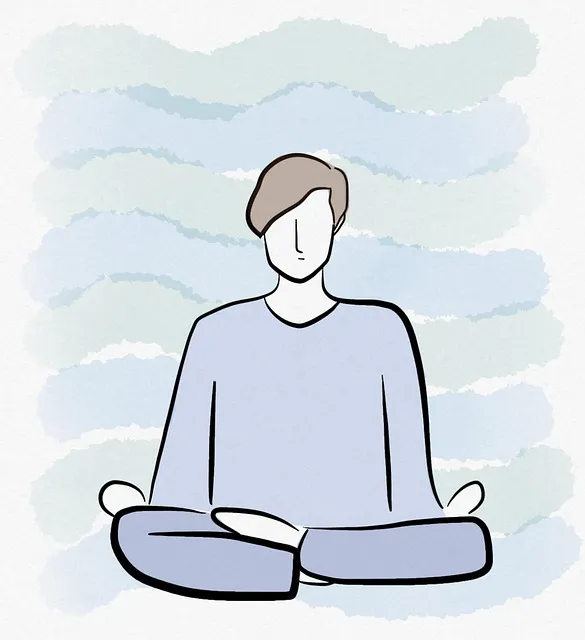Kaiser Permanente behavioral health providers in Highlands Ranch emphasize that mood regulation is key to well-being. They employ CBT to target negative thinking patterns, mindfulness practices for calm and resilience, and lifestyle adjustments like nutrition, exercise, and sleep to enhance emotional intelligence and manage mental health effectively. Cultural sensitivity ensures tailored interventions for diverse individuals.
At Kaiser Permanente behavioral health services in Highlands Ranch, we recognize the significance of effective mood regulation for overall well-being. This article explores a comprehensive array of strategies designed to help individuals navigate and manage their emotional states. From cognitive behavioral techniques that challenge negative thought patterns to mindfulness practices fostering present-moment awareness, we delve into proven methods. Additionally, we discuss lifestyle adjustments, emphasizing the synergy between nutrition, movement, and sleep for optimal mental health.
- Understanding Mood Regulation: A Foundation for Well-being
- Cognitive Behavioral Techniques: Shaping Thoughts and Emotions
- Mindfulness Practices: Cultivating Present-Moment Awareness
- Lifestyle Adjustments: Nutrition, Movement, and Sleep Synergy
Understanding Mood Regulation: A Foundation for Well-being

Understanding Mood Regulation is a fundamental aspect of achieving and maintaining well-being, as emphasized by Kaiser Permanente behavioral health providers in Highlands Ranch. Mood, a complex interplay of biological, psychological, and social factors, significantly influences our daily lives and overall mental health. Effective mood regulation strategies empower individuals to navigate life’s challenges with resilience and adaptability.
Cultural Sensitivity in Mental Healthcare Practice plays a crucial role in this process. Recognizing the impact of cultural background on emotional experiences and expression, healthcare providers can tailor interventions for optimal effectiveness. By integrating cultural considerations into treatment plans, they ensure that Mood Management and Stress Management techniques resonate with individuals from diverse backgrounds, fostering more inclusive and successful therapeutic outcomes.
Cognitive Behavioral Techniques: Shaping Thoughts and Emotions

Cognitive Behavioral Techniques (CBT) offer a powerful approach to mood regulation by focusing on shaping thoughts and emotions. This strategy, utilized by Kaiser Permanente behavioral health providers in Highlands Ranch, aims to identify and challenge negative or distorted thinking patterns that can contribute to various emotional states, including depression. By teaching individuals to recognize and reframe these thoughts, CBT empowers them to manage their moods more effectively.
For instance, a person struggling with low mood might learn to identify automatic negative thoughts (ANTs) – quick, unchallenged beliefs that contribute to feelings of sadness or anxiety. With the guidance of a healthcare provider, they can then work to replace these ANT’s with more realistic and positive statements, thereby boosting confidence and preventing depression. This process encourages individuals to develop healthier emotional responses and build resilience, ultimately enhancing their overall well-being.
Mindfulness Practices: Cultivating Present-Moment Awareness

Mindfulness practices, such as those taught by Kaiser Permanente behavioral health providers in Highlands Ranch, are powerful tools for mood regulation. By cultivating present-moment awareness, individuals can learn to observe their thoughts and emotions without judgment. This approach, often incorporated into Compassion Cultivation Practices, encourages a deeper understanding of one’s internal experiences, fostering a sense of calm and resilience.
Engaging in regular mindfulness exercises can transform the way people navigate life’s challenges. It becomes easier to recognize triggers for negative moods and to respond rather than react. Moreover, these practices have been shown to reduce symptoms associated with various mental health conditions, including anxiety and depression, contributing to overall well-being. In addition, by promoting non-judgmental acceptance of the present moment, mindfulness can help to break down barriers caused by Mental Illness Stigma Reduction Efforts, creating a more supportive environment for those seeking behavioral health services.
Lifestyle Adjustments: Nutrition, Movement, and Sleep Synergy

At Kaiser Permanente behavioral health providers in Highlands Ranch, we understand that lifestyle adjustments are crucial components in mood regulation strategies. Nutrition plays a significant role in mental wellness; incorporating nutrient-rich foods and staying hydrated can positively impact brain function and overall emotional intelligence. Regular physical movement, such as aerobic exercise or mindfulness practices like yoga, has been shown to reduce stress, enhance compassion cultivation, and improve sleep quality.
Additionally, prioritizing consistent and restorative sleep is essential for maintaining optimal mental health. Sleep allows the body to regenerate and repair, ensuring our minds are sharp and emotions regulated. When combined with effective coping mechanisms and support from Mental Wellness Coaching Programs Development, these lifestyle adjustments can be powerful tools in managing and improving one’s emotional well-being.
Mood regulation is a multifaceted process that empowers individuals to navigate life’s challenges with resilience. By combining cognitive behavioral techniques, mindfulness practices, and lifestyle adjustments like those promoted by Kaiser Permanente behavioral health providers in Highlands Ranch, people can effectively manage their emotional well-being. Incorporating these strategies into daily routines fosters a sense of balance, enabling individuals to thrive amidst life’s ups and downs.






